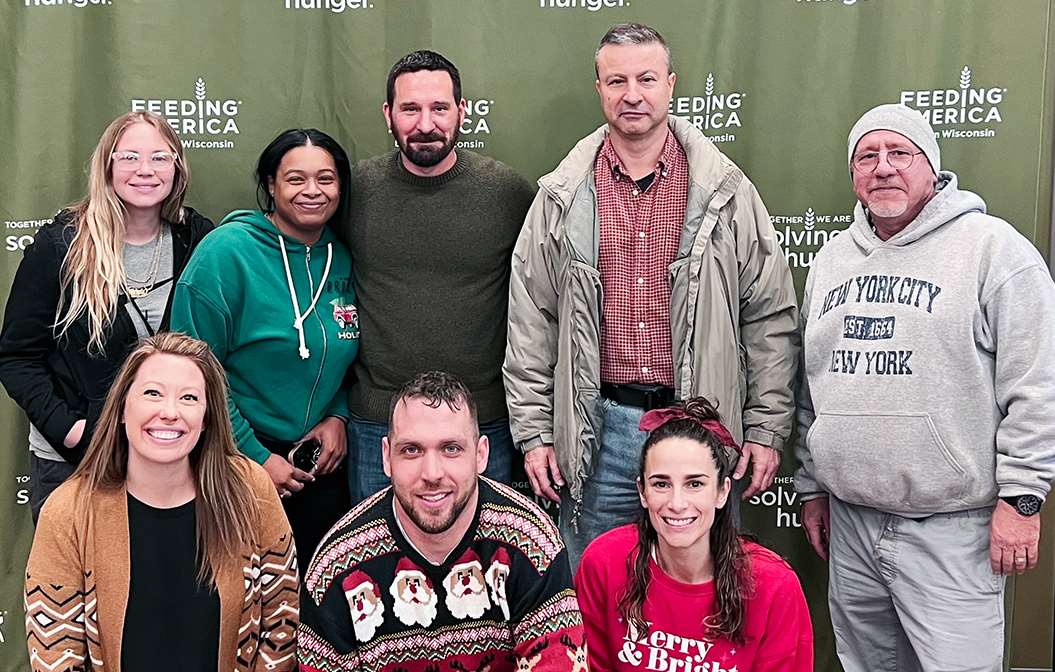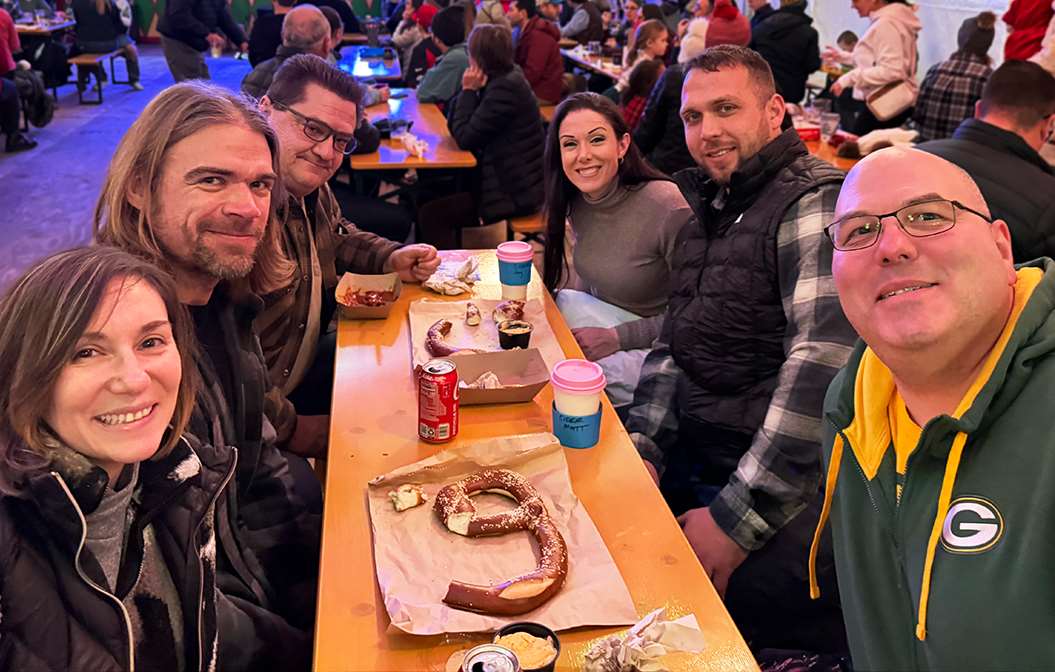BRAVE Program Marks Two Years of Steady Growth
The BRAVE (Building Resilience through Action in Veterans and First Responders) program at the Wisconsin Institute of NeuroScience (WINS) is a traumatic brain injury recovery program specifically designed for military veterans and first responders. The first program of its kind in the Midwest, BRAVE also is the fastest growing such program in the country.
WINS integrates the extraordinary expertise, resources and clinical experience of four partners: the Medical College of Wisconsin (MCW), Children’s Wisconsin, the Froedtert & the Medical College of Wisconsin health network and the Clement J. Zablocki Veterans’ Administration Medical Center.
April 2025 marks the two-year anniversary of a $12.5 million gift from Avalon Action Alliance that created the BRAVE program and one year since it began treating its first patients.
Since that time, BRAVE has graduated 31 individuals from its intensive, three-week outpatient program. Meanwhile, another 83 have completed a three-day intake evaluation, which prepares them for the customized treatment plan that BRAVE delivers. And more than 200 have completed applications to enter the program.
This level of growth is unseen among similar programs connected with Avalon nationwide – most of which took several years to achieve success.
“Veterans and first responders can be reluctant to seek treatment for so-called ‘invisible wounds’ such as brain injury and the emotional effects of their service,” says Gregory Burek, MD, GME ’18, medical director of BRAVE and MCW associate professor of psychiatry and behavioral medicine. “When they do look for care, they tend to trust friends, other service members or word-of-mouth for where to go for treatment. So we didn’t really know how long it might take to build a network of program participants.”
Relationships have been key to BRAVE’s growth. Dr. Burek, a former Marine, along with BRAVE’s veteran outreach coordinator, who is a former soldier, have built extensive connections among military veteran and first responder groups across the country – enabling BRAVE to pull in participants from 12 states, with many individuals traveling hundreds of miles to participate.

Much of BRAVE’s success is due to the connections it has built. This includes supporting the community as shown here by members who are sorting food for Feeding America. (front row, l-r) Jenna Haberkorn, Matt Seidl, Meaghan Donnellan (back row, l-r) Michelle Weiss, Lisha Blake, Dr. Greg Burek, Chad Kline, Neal Bork
This rapid growth has the program seeking to expand. “We’ve outgrown our current space and are actively looking for a larger office,” Dr. Burek shares. “This will give us the ability to diagnose and treat more participants, but also to provide more treatments that address each person’s individual needs.”
Increasing treatments isn’t the only way the program will expand. In January 2026, Avalon plans to execute a randomized controlled clinical trial to assess the efficacy of the intensive interdisciplinary rehabilitation program that the BRAVE program and other Avalon sites provide. MCW is slated to lead this effort with Avalon.
MCW and WINS are global leaders in the science, research and treatment of neurotrauma. Under the direction of Michael McCrea, PhD, MCW professor of neurosurgery and director of the WINS Clinical Neuroscience Research Center, participants in the BRAVE program will gain the ability to take part in clinical trials and other brain trauma research.

BRAVE has created an inclusive community of veteran and first responder alumni who continue to support each other outside of the program. Shown here are participants in the first alumni event in December 2024, at the Wauwatosa (Wis.) Christmas Market.
“This is exciting news for MCW, BRAVE and program participants because it gives us the opportunity to bring together what we at MCW do best – using science to drive the future of medicine, especially in the field of traumatic brain injury. It also enables us to treat people who have dedicated their life to service,” says Dr. McCrea. “Ultimately, BRAVE is about helping people who have been injured protecting us, so they can return to the best version of themselves. This gives us new ways to do that, while also furthering science.”
– Chris Combs



